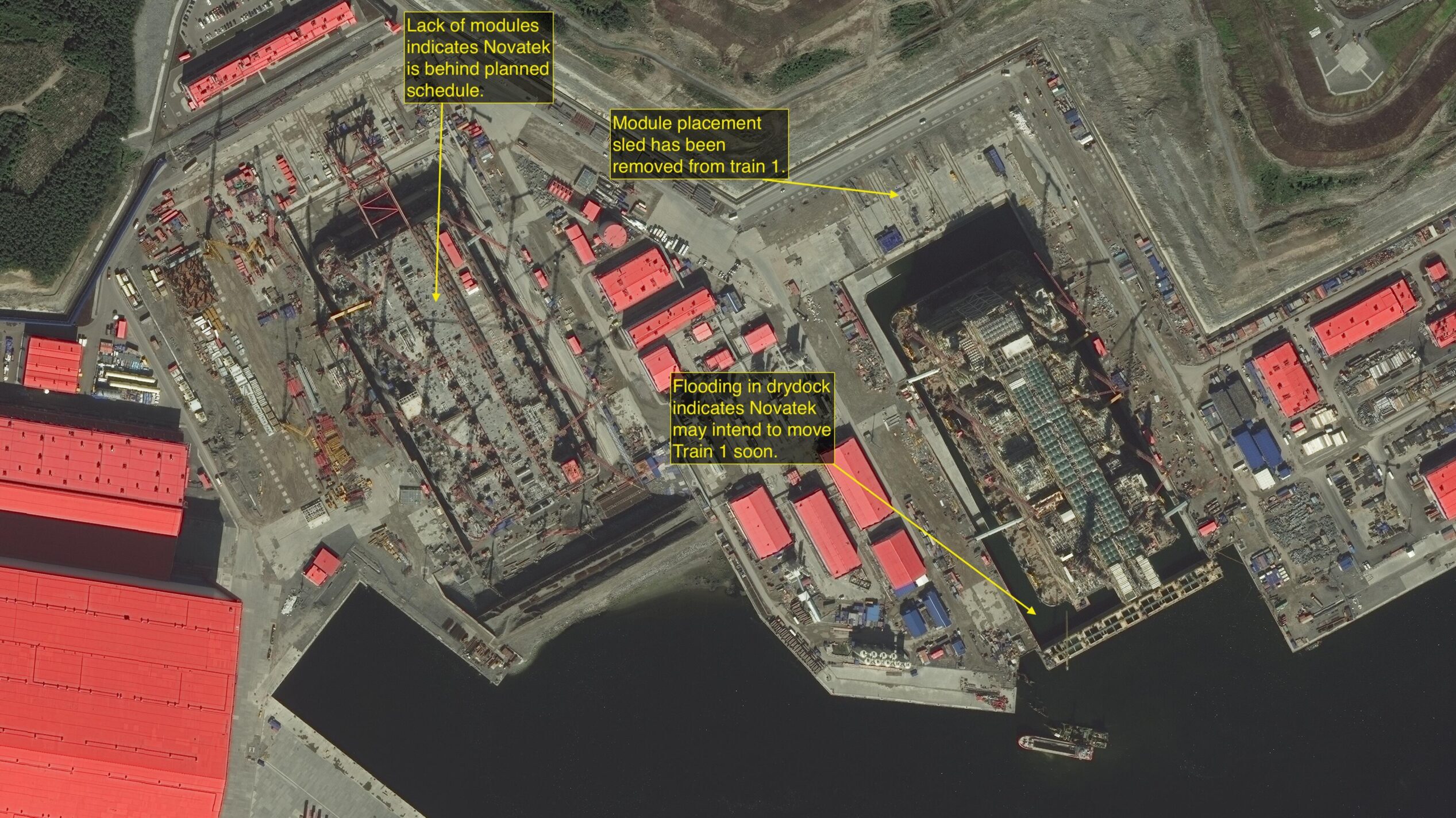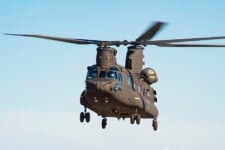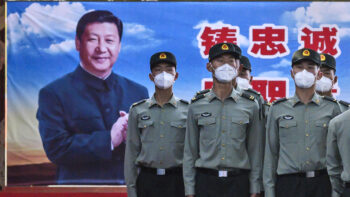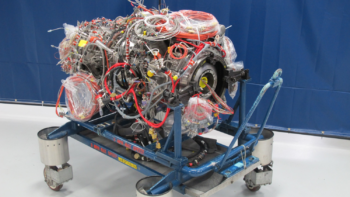
Satellite imagery analyzed in a recent report published on NGA’s Tearline website. (via Tearline.mil)
WASHINGTON — Western sanctions targeting Russia after its invasion of Ukraine have put a damper on joint Russian-Chinese energy projects in the Arctic, according to a new report sponsored by US military intelligence.
The report, produced as part of the National Geospatial-Intelligence Agency’s Tearline partnership with outside researchers, is based on satellite imagery that purportedly shows some of China’s “critical investments” in far-northern Russia stalled or struggling.
For example, it says some “modules” for one project were supposed to be delivered from China to Russian facilities in March, but “imagery analysis shows that as late as September 2022, many of the Chinese-manufactured modules were still sitting in Chinese docks.”
The report says sanctions have “likely precluded many of the leading, western-based, heavy-lift companies contracted to transport the modules […] participating in the project.” Their “exodus” left “gaping holes in the project that it is struggling to fill.”
That and other imagery reportedly shows that “one of China’s most important forays into the Arctic may be at risk.”
The report itself was written by two researchers at Washington University in St. Louis under partnership with NGA, which reviewed the researchers’ methodologies. It was published on the NGA’s Tearline website Tuesday. The Tearline program is a novel open-source effort by the normally secretive NGA designed to shed light on what the agency thinks are “under-reported” strategic issues. The intelligence agency emphasizes that it doesn’t exert editorial control over Tearline publications.
According to the report, China’s recent investments in the Arctic were in part to provide an alternative to energy routes that rely on the Strait of Malacca, which is controlled by Singapore, a problem for Beijing referred to as the “Malacca Dilemma.”
“In order to achieve this, China seeks a closer economic partnership with Russia, particularly regarding access to Russia’s energy deposits above the Arctic Circle,” the report says.
In return, the energy deals provide Russia with funding at a time when Western sanctions continue to squeeze the Russian economy. “Russia’s need for economic support in the face of new sanctions combined with China’s need for energy and Arctic influence make them logical partners,” the report says.
But the report alleges it’s not just energy China is after — echoing concerns recently voiced by Gen. Glen VanHerck, head of US Northern Command, as well as by the Biden administration’s Oct. 7 Arctic Strategy.
“Despite having no territory in the Arctic, China seeks to establish itself as a key actor in Arctic affairs,” it says. “While China is not one of the eight nations that possess territory in the Arctic, it claims to have an important stake in the region and calls itself a ‘near Arctic state.”






















